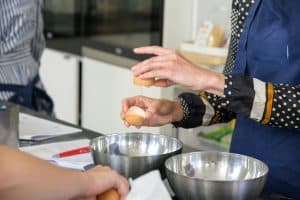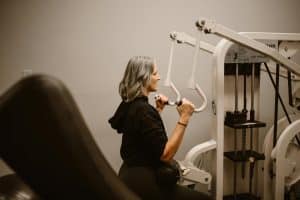Cooking with ADHD: Kitchen Strategies for Attention Deficit Challenges
For individuals with Attention Deficit Hyperactivity Disorder (ADHD), even the simplest tasks can seem challenging. Cooking, in particular, can be overwhelming for those with ADHD due to its multi-tasking demands and attention to detail. However, with the right strategies and kitchen hacks, cooking can be a fun and stress-free activity for individuals with ADHD. In this article, we will discuss some kitchen strategies specifically designed for those with ADHD to make cooking an enjoyable and fulfilling experience.
Understanding ADHD and its Impact on Cooking
ADHD is a neurodevelopmental disorder that affects the focus, attention, and ability to control impulses. It can make it difficult to plan, organize, and execute tasks, which can lead to frustration and stress in everyday activities, including cooking.
The kitchen can be a chaotic and overwhelming place for individuals with ADHD. The constant multitasking, sharp objects, and hot stoves can cause anxiety and trigger impulsivity. Moreover, the need for pre-planning, following directions, and maintaining cleanliness can also pose a challenge. However, with a few adjustments and systematic approaches, individuals with ADHD can enjoy cooking and even master it.
Kitchen Strategies for ADHD Challenges
1. Simplify and Organize
One of the biggest hurdles for individuals with ADHD is staying organized. In the kitchen, this means having a clutter-free and organized workspace. Start by decluttering your kitchen and putting everything in their designated places. Use labels and color-coded containers to make it easier to find and retrieve ingredients and cooking tools.
Additionally, simplify your cooking process by having fewer ingredients and equipment. Trying to keep track of multiple ingredients and gadgets can be overwhelming and lead to mistakes and accidents. Stick to simple recipes and use basic kitchen tools to make cooking more manageable.
2. Prepare and Plan Ahead
Individuals with ADHD tend to be impulsive, which can result in skipping steps, rushing, or forgetting essential ingredients. However, with proper planning and preparations, these challenges can be overcome. Begin by reading the entire recipe and creating a list of ingredients and equipment needed. Set them out in their designated spot before starting to cook.
Moreover, breaking down multi-step recipes into smaller, manageable tasks can help individuals with ADHD stay focused and on track. Use reminders, timers, or checklist apps to help you stay organized and follow your planned schedule.
3. Utilize Visual Cues
People with ADHD often have better visual and hands-on learning abilities compared to verbal ones. Utilizing visual cues can help individuals with ADHD stay organized and focused in the kitchen. For example, using labels for ingredients, colorful measuring cups and spoons, and pictorial recipes can make cooking more interesting and less overwhelming.
Additionally, breaking down the cooking process into smaller tasks and placing the necessary ingredients and equipment in front of you can help keep you on track and reduce distractions.
4. Engage All Your Senses
Individuals with ADHD often have difficulty staying focused for an extended period. Engaging all your senses while cooking can help you stay in the present and prevent distractions. Pay attention to the colors, smells, textures, and tastes of the ingredients and dishes you are preparing. This can also make cooking a more enjoyable and creative experience.
5. Make it Fun!
Cooking does not have to be a dull and stressful task for individuals with ADHD. To make it more enjoyable, try cooking with a friend or family member, turning on some music, or using funny utensils or aprons. These distractions can help reduce the pressure and make cooking a more relaxed and enjoyable activity.
Conclusion
Cooking can be a therapeutic and empowering activity for individuals with ADHD. With the right strategies and approach, it can help improve focus, organization, and time-management skills. By simplifying, planning, utilizing visual cues, and making it fun, cooking can become a positive and fulfilling experience for individuals with ADHD.
Remember, everyone has unique challenges and needs. Find what works for you and don’t be afraid to experiment and implement your own kitchen strategies. Happy cooking, and bon appétit!










